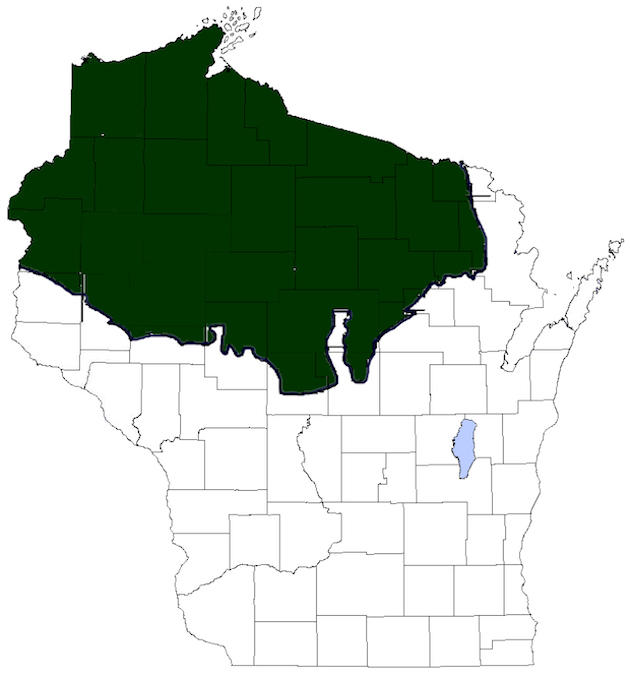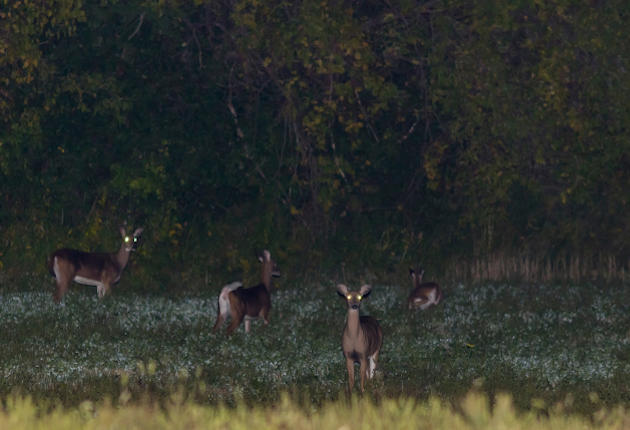To the chagrin of Wisconsin’s Department of Natural Resources, a federal judge has granted the Chippewa Native American tribe the right to once again hunt white-tailed deer at night across their former land holdings. This year’s hunt will begin Nov. 1 and run through Jan. 4, 2016.
U.S. District Judge Barbara Crabb made the ruling Oct. 13, allowing the 5,100 members of the Chippewa tribe to hunt deer at night on their ancestral lands. While Chippewa hunters have previously hunted at night on their reservations, the new ruling would expand their hunting opportunities to the land they originally gave to the U.S. The area amounts to 22,400 square miles across much of northern Wisconsin. The Chippewa turned the “Ceded Territory,” as it is known, over to the United States in 1837 and 1842. Before that, Native Americans hunted at night all across the region.

The Chippewa tribe can now hunt for deer at night in the green-shaded area of Wisconsin. (Photo courtesy of Forex Report Daily)
The tribe has been pushing for the right to night hunt for years. The Chippewa have even established their own strict hunting regulations — stricter than the state’s night hunting rules — to ensure hunters are ready to go afield now that the ruling has been made. Tribal hunters 1) must be able to shoot a 6 ¼-inch bull’s eye eight times out of 10 in the dark, 2) take a special 12-hour training course, 3) only shoot when their hunting area has earthern backstops to stop projectiles, and 4) submit shooting plans with safe zones of fire.
The decision, according to an op-ed in Wisconsin’s Journal Times, comes after a ruling by Judge Crabb in 1991 to the contrary. In the previous case, Crabb reportedly ruled against night hunting by tribal hunters, saying it was dangerous for both tribal members and the general public to hunt at night.
The Chippewa pointed to the state’s adoption of night hunting for wolves, albeit temporary, as a precedent of night hunting’s safety. That season came in the mid-2000s and coincided with state-sanctioned night hunts for deer, which were an effort to slow chronic wasting disease in the area, according to Forex Report Daily.
The DNR is far from thrilled by the ruling, but said it will work to inform the public about the situation ahead of the November opener. Forex reported that night hunts were practiced in four other states, and a federal appeals court said the method did not pose a significant risk. While the hunt is a momentous occassion for the tribe, officials expect only 200 or so hunters to participate.
According to Indians.org, the Chippewa tribe is made up of approximately 150 different groups spread across the northern Midwest and parts of Canada. Groups of Chippewa live on individual reservations and have their own goverments, school systems, law enforcement, etc. Many Chippewa speak English, but some also use their native language, Ojibway.
Cover Image: Thinkstock

